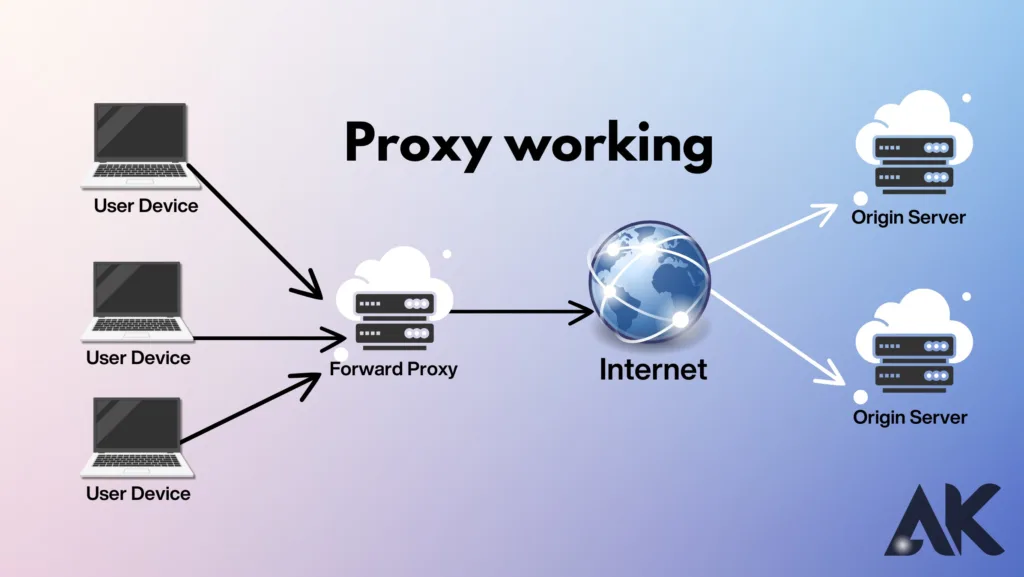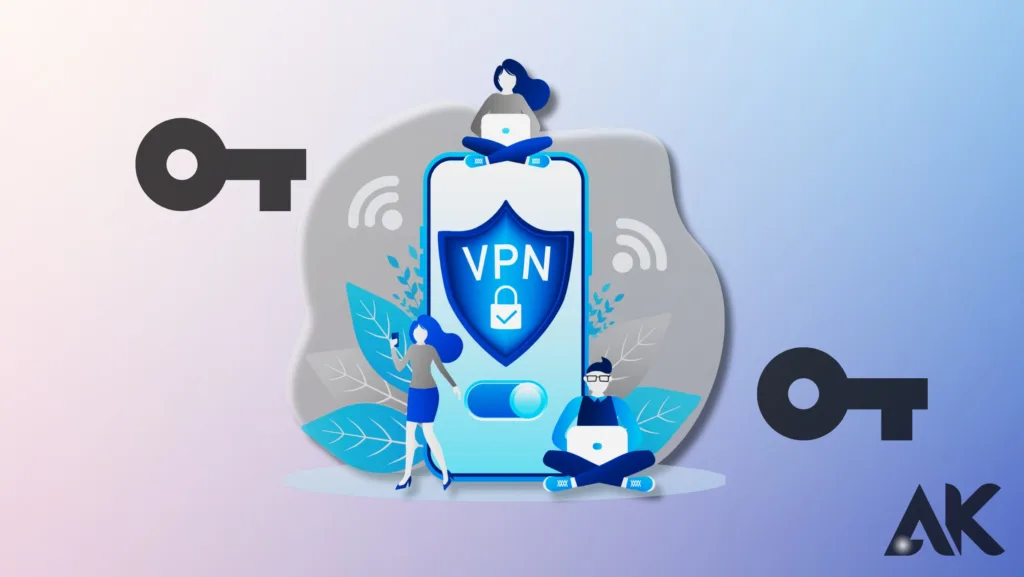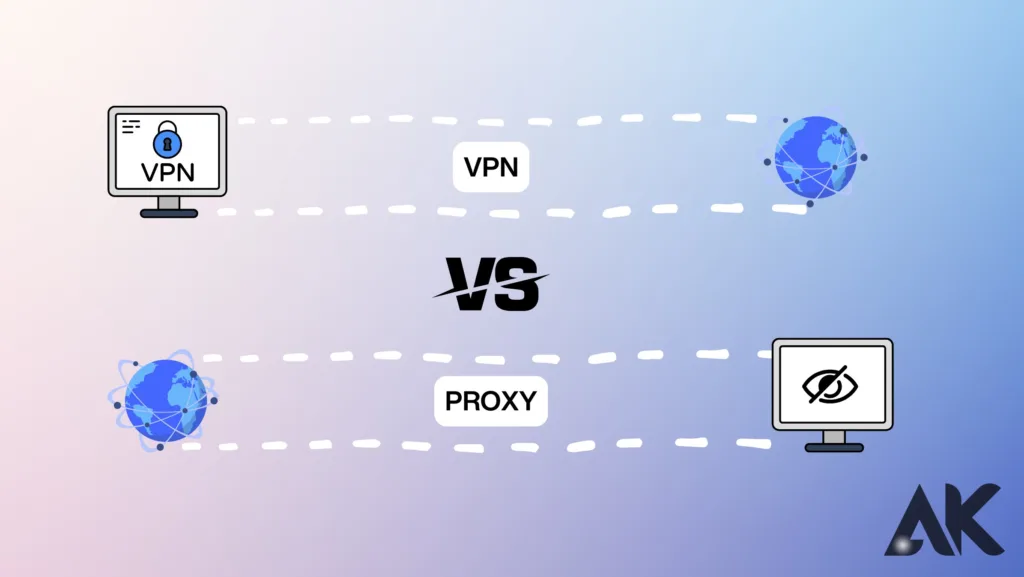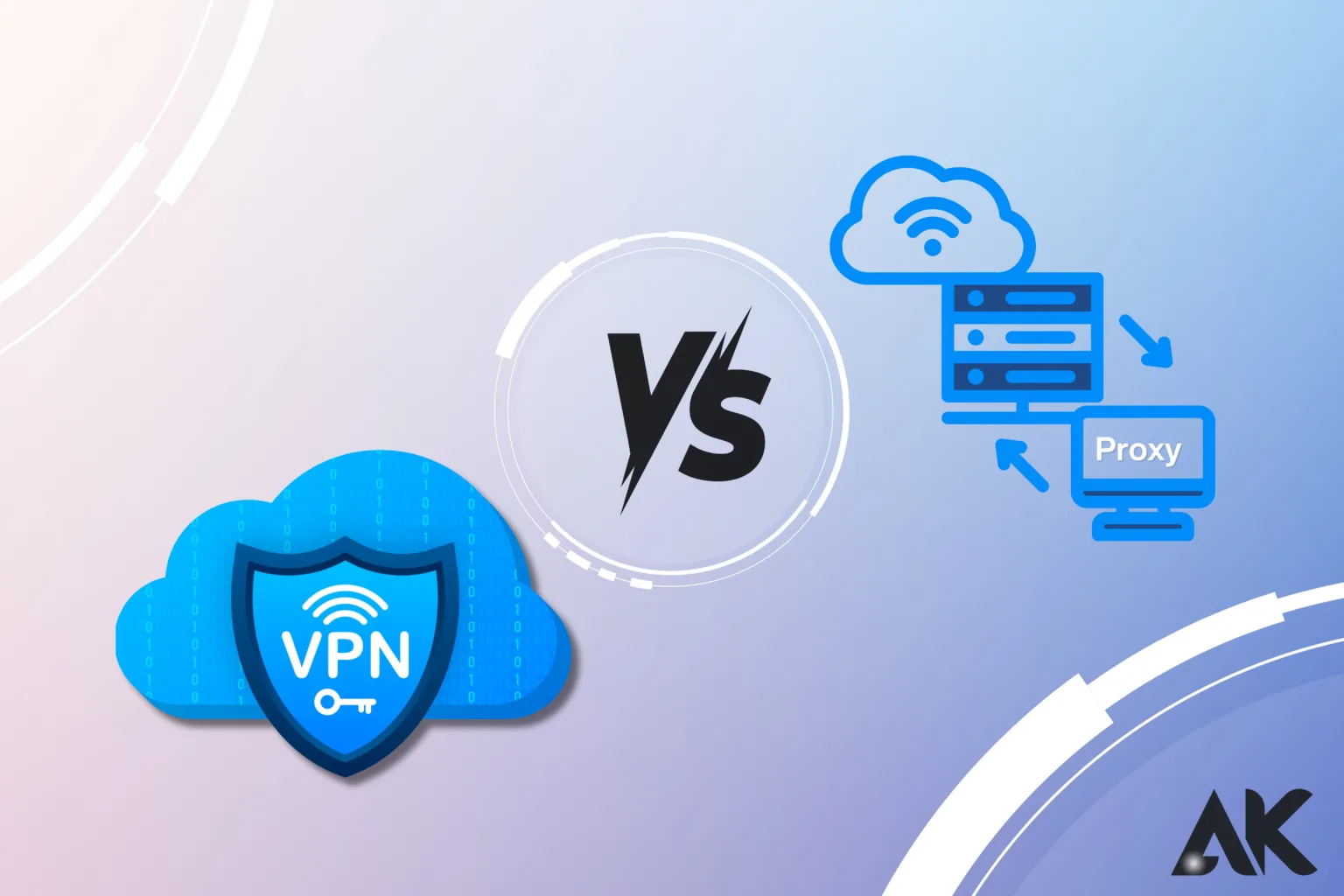VPN vs Proxy Both proxies and VPNs (Virtual Private Networks) are well-liked tools for protecting your online anonymity, but they have various uses and meet different needs. A VPN encrypts your internet traffic and passes it through a secure server, hiding your IP address and shielding your online activities from prying eyes like hackers, ISPs, and even government monitoring. On the other hand, a proxy server acts as a bridge between your device and the internet, primarily concealing or modifying your IP address; however, it often lacks the robust encryption that VPNs provide.
Both can assist in avoiding geo-restrictions and preserving anonymity, but their usefulness and appropriateness vary depending on your particular needs, whether you’re streaming, browsing securely, or accessing prohibited material. Making an informed decision that supports your privacy objectives requires an understanding of their primary distinctions.
What Is a Proxy, and How Does It Work?

| Aspect | Explanation |
|---|---|
| Definition | A proxy is an intermediary server between your device and the internet. |
| Function | Routes your internet traffic through its server, masking your IP address. |
| Data Handling | Does not encrypt data, leaving it vulnerable to interception. |
| Use Cases | Hiding IP addresses, bypassing simple geo-restrictions, or web scraping. |
| Limitations | Limited privacy, no encryption, and may not work across all applications. |
How Does a VPN Enhance Your Online Privacy?

| Feature | How It Enhances Privacy |
|---|---|
| IP Address Masking | Hides your real IP address, making it harder to trace your online activities back to you. |
| Data Encryption | Encrypts all internet traffic, preventing hackers, ISPs, or surveillance from accessing your data. |
| Anonymity | Routes traffic through secure servers, keeping your identity and location private. |
| Public Wi-Fi Security | Protects your data on unsecured networks, shielding you from potential attacks. |
| Bypassing Surveillance | Prevents government or ISP monitoring of your browsing activities. |
| No-Logs Policies | Many VPNs ensure your online actions are not recorded or stored by the provider. |
Performance: Speed and Reliability in VPN vs Proxy

| Aspect | VPN | Proxy |
|---|---|---|
| Speed | May experience slight slowdowns due to encryption, but is often optimized. | Generally faster as it lacks encryption but can slow down under load. |
| Reliability | Highly reliable for consistent performance across all apps and devices. | Less reliable; performance varies depending on server load and type. |
| Connection Stability | Offers stable connections with high-quality servers. | May experience frequent disconnections or server issues. |
| Data Handling | Encrypts and secures all data, ensuring privacy and integrity. | Handles data without encryption, which can lead to vulnerabilities. |
Security: How Secure Are Proxies Compared to VPNs?
| Aspect | VPN | Proxy |
|---|---|---|
| Encryption | Encrypts all data, ensuring secure communication and protection from hackers. | Typically does not encrypt data, leaving it vulnerable to interception. |
| IP Address Protection | Hides your real IP address effectively. | Hides IP address but may still expose other identifying information. |
| Data Privacy | Often adheres to no-logs policies, ensuring your activities aren’t stored. | Free proxies may log and sell user data, compromising privacy. |
| Public Wi-Fi Security | Secures data on public networks, preventing unauthorized access. | Offers no protection on public Wi-Fi networks. |
| Resistance to Threats | Shields against man-in-the-middle attacks and online surveillance. | Vulnerable to attacks due to lack of security protocols. |
Cost Comparison: Are Proxies Cheaper Than VPNs?
| Aspect | VPN | Proxy |
|---|---|---|
| Cost | Typically requires a subscription, ranging from $5–$15/month. | Often free or low-cost, with premium options available. |
| Features for Price | Offers robust security, encryption, and privacy features. | Limited features; lacks encryption and full-device protection. |
| Value for Money | Provides comprehensive privacy and security, justifying the cost. | Cheaper but less reliable for privacy-focused users. |
Use Cases: When to Choose a VPN or Proxy
| Use Case | VPN | Proxy |
|---|---|---|
| Online Privacy | Best for protecting privacy with encryption and anonymous browsing. | Limited; only hides IP but lacks strong privacy features. |
| Secure Public Wi-Fi Use | Ideal for securing data on public networks with encryption. | Not suitable as it doesn’t secure data. |
| Bypassing Geo-Restrictions | Reliable for accessing restricted content on streaming platforms, etc. | It is good for budget users with basic needs. |
| High-Security Activities | Recommended for sensitive tasks like banking or handling personal data. | Not secure enough for sensitive activities. |
| Speed-Sensitive Tasks | Suitable with slight trade-offs in speed due to encryption. | Better for speed when security isn’t a priority. |
| Cost-Sensitive Tasks | Worth the cost for comprehensive security and privacy. | It is not suitable as it doesn’t secure data. |
Conclusion
VPN vs Proxy Choosing between a VPN and a proxy for online privacy ultimately depends on your specific needs, but for most privacy-focused users, a VPN is a superior choice. With its robust encryption, ability to secure all internet traffic on your device, and enhanced anonymity, a VPN provides comprehensive protection against threats like data theft, ISP monitoring, and censorship. While proxies can be useful for tasks like bypassing simple geo-blocks or handling lightweight browsing needs, their lack of encryption and limited scope makes them less effective for safeguarding sensitive information.
If your priority is convenience or cost and you’re dealing with non-critical activities, a proxy might suffice. However, for reliable security, better speed optimization, and a wider range of privacy features, investing in a trusted VPN is the best route to protect your online activities in today’s increasingly surveillance-heavy digital world.
FAQ
Q1: What is the main difference between a VPN and a proxy?
A VPN encrypts your internet traffic and routes it through a secure server, offering comprehensive privacy and security. A proxy simply acts as an intermediary between your device and the internet to hide your IP address but typically lacks encryption, making it less secure.
Q2: Which is better for online privacy: VPN or proxy?
A VPN is better for online privacy because it encrypts your data, protecting it from hackers, ISPs, and surveillance. Proxies can hide your IP but do not encrypt traffic, leaving you vulnerable to interception and data leaks.
Q3: Are VPNs slower than proxies?
Because they don’t encrypt data, proxies can occasionally be faster, but security suffers as a result. Due to encryption, VPNs may cause a little slowdown in your connection; however, with optimized servers, modern VPNs frequently reduce this lag.

